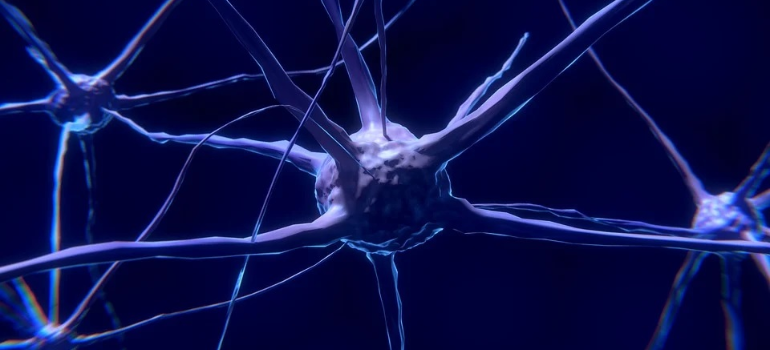Addiction is a progressive condition, unyielding in its destructive path. As such, the longer one waits to intervene, the more formidable the battle becomes. Understanding the critical significance of early intervention in addiction treatment is pivotal to improving outcomes and restoring lives.
At Harmony Ridge Recovery, we have long been champions of education, destigmatization, and early intervention efforts, recognizing their profound impact on the recovery journey. As pioneers among detox centers in WV, we firmly believe that barriers to early intervention can be overcome.
Through this article, we hope to foster greater awareness and encourage proactive measures that can positively shape the trajectory of individuals grappling with addiction. Read on as we delve into the transformative power of early intervention in addiction treatment.
Understanding Addiction
Initially, understanding addiction is essential in addressing its complex nature as a disease. Addiction does not constitute a simple illness. Rather, it is a chronic condition characterized by the compulsive and uncontrollable use of substances or engagement in behaviors despite negative consequences. It is a multifaceted disorder that affects the brain’s reward system, leading to intense cravings, loss of control, and an inability to abstain.
One crucial aspect of addiction is its progressive nature, as it tends to worsen over time if left untreated. Initially, individuals may experiment with substances or engage in certain behaviors recreationally, but as addiction takes hold, the symptoms intensify. The brain undergoes changes that make it increasingly difficult for the person to resist the addictive substance or behavior. As a result, the individual’s life becomes more consumed by their addiction, often leading to detrimental effects on their physical and mental health, relationships, and overall functioning. With each passing day, the grip of addiction tightens, making it progressively harder to break free from its grasp.

Risk Factors and Predisposition Factors for Addiction
That said, a combination of risk factors and predisposing factors influences addiction. These factors contribute to an individual’s vulnerability to developing a substance use disorder or behavioral addiction. Since both play a crucial part in early intervention in addiction treatment, here we should outline both.
Risk factors are characteristics or conditions that increase the likelihood of addiction and include:
- Environmental factors: Growing up in an unstable or dysfunctional family environment, exposure to substance abuse within the family or social circle, and peer pressure.
- Trauma and adversity: Physical, emotional, or sexual abuse, neglect, or other traumatic experiences during childhood or adulthood.
- Mental health conditions: Co-occurring mental health disorders such as depression, anxiety, or post-traumatic stress disorder (PTSD).
- Early substance use: Starting drug or alcohol use at a young age increases the risk of addiction later in life.
- Lack of social support: Limited social connections, poor social skills, and inadequate support systems.
Predisposing factors refer to inherent traits or genetic predispositions that can make someone more susceptible to addiction and include:
- Genetic factors: Certain genes and family history of addiction can contribute to an individual’s predisposition to addiction.
- Brain chemistry: Variations in brain chemistry and neurotransmitter systems may make some individuals more prone to addictive behaviors.
- Impulsivity and sensation-seeking: High levels of impulsivity and a strong desire for novel and intense experiences can increase the likelihood of addiction.
- Coping mechanisms: Poor stress-coping skills and limited emotional regulation abilities may contribute to using substances or behaviors as a means of escape or self-medication.
Understandably, having these factors does not guarantee addiction. Still, noting them can inspire caution and warrant attention.
How Can Early Intervention Prevent the Progression of Addiction?
With the above in mind, early intervention in addiction treatment plays a pivotal role in preventing the progression of addiction. It does so by disrupting its stages and mitigating the long-term consequences.

Addiction typically follows a progression that begins with experimentation, leading to regular use, abuse, and ultimately dependence. The longer addiction progresses, the more entrenched the patterns become, making it increasingly challenging to reverse the detrimental effects. Early intervention can interrupt this cycle at various stages, offering crucial benefits:
- Firstly, by identifying and addressing addictive behaviors in the early stages, intervention can prevent the escalation of substance use and associated harmful consequences.
- Secondly, early intervention provides an opportunity to educate individuals about the risks and consequences of addiction, increasing their understanding and motivation for change.
- Additionally, intervening early allows for the implementation of targeted treatment interventions tailored to the individual’s needs, enhancing the likelihood of successful recovery.
- Moreover, early intervention can reduce the physical, psychological, and social damage caused by addiction.
By addressing the underlying factors driving addictive behaviors, early intervention can help individuals develop healthier coping mechanisms, build support networks, and improve their overall well-being. This is what providers of drug rehab in WV, like ourselves, seek to accomplish, ensuring better recovery outcomes.
What Does Early Intervention in Substance Misuse Look Like?
Still, early intervention in addiction treatment may dissuade individuals involved since they often don’t know what it involves. To address this factor and hopefully put your mind at ease, here we can outline the basic process.
Early intervention in substance misuse involves a range of approaches aimed at identifying and addressing problematic substance use in its early stages. It begins with screening and assessment processes to identify at-risk individuals or those already engaged in substance misuse. Then, following the assessment, brief interventions and motivational interviewing techniques are utilized to raise awareness, increase motivation for change, and explore the underlying factors contributing to substance use. These interventions are typically brief and focused, aiming to elicit self-reflection and facilitate behavior change.
Early intervention also involves connecting individuals to appropriate treatment options, such as outpatient counseling, support groups, or residential programs, depending on the severity of the substance misuse. This is a crucial distinction to make, as residential treatment facilities in West Virginia may not offer outpatient programs and vice versa. Individuals must deeply grasp what they need and receive appropriate guidance toward optimal solutions.

Crucially, successful early intervention in substance misuse relies on collaboration among healthcare professionals, counselors, and support networks. This interdisciplinary approach ensures a comprehensive assessment, individualized treatment planning, and ongoing support.
Healthcare professionals themselves play a key role in conducting screenings, providing clinical expertise, and coordinating care. Counselors offer therapeutic interventions, guidance, and counseling support to individuals in need. Support networks, including family, friends, and community organizations, contribute to creating a supportive environment that encourages positive change and long-term recovery.
Recognizing Early Warning Signs of Substance Misuse or Possible Dependency
Of course, recognizing the early warning signs of substance misuse or possible dependency is of paramount importance in facilitating early intervention in addiction treatment. Early identification allows for the implementation of effective strategies to address the issue before it escalates.
Professionals in healthcare, education, and community settings play a crucial role in this process, as they are ideally positioned to observe and identify signs of substance misuse. Training and education programs for these professionals, equipping them with the knowledge and skills to recognize these warning signs, are essential. By increasing awareness and understanding, professionals can intervene early, connect individuals with appropriate resources, and initiate the necessary support.
Furthermore, education and awareness initiatives targeting the general public are equally vital. By disseminating information about the early warning signs of substance misuse, these efforts empower individuals to recognize problematic behaviors in themselves or their loved ones. Early identification can lead to open conversations, seeking help, and accessing early intervention services.
Common Behavioral and Physical Signs Indicating Substance Misuse
If such support systems are not in place, it is naturally crucial to recognize early warning signs of substance misuse. By being aware of common behavioral and physical signs, individuals can identify potential issues and seek appropriate help early.

Behavioral signs are commonly indicative of substance misuse and can include:
- Drastic changes in behavior or personality
- Increased secrecy and withdrawal from social activities
- Neglecting responsibilities at work, school, or home
- Engaging in risky or illegal activities to obtain substances
- Sudden financial difficulties or unexplained money problems
In addition, physical signs can indicate initial dependency that may require early intervention in addiction treatment. They tend to be easier to identify, as they may include:
- Changes in appetite or weight loss
- Bloodshot eyes or dilated pupils
- Poor hygiene and neglect of personal appearance
- Unexplained mood swings, irritability, or agitation
- Slurred speech or coordination difficulties
It’s important to note that these signs may vary depending on the substance being misused. Still, recognizing these warning signs and taking appropriate action can make a significant difference in preventing the progression of substance misuse or dependency. If you or someone you know exhibits these signs, it is crucial to reach out to healthcare professionals, counselors, or support networks for further assessment and guidance.
Involving Families & Loved Ones in Early Intervention
If you do find yourself in this position, there are, fortunately, many ways to remain involved. Indeed, involving families and loved ones in early intervention is crucial for effective addiction recovery. Substance abuse treatment in WV often leverages the power of this principle to achieve better recovery outcomes.
The role of family and social support cannot be overstated in helping individuals overcome addiction. Family-centered interventions and therapy recognize the impact of addiction on the entire family unit and aim to address underlying dynamics, improve communication, and strengthen relationships. By involving families in the early stages of intervention, they can become active participants in the recovery process, offering encouragement, understanding, and accountability.
Furthermore, educating and empowering families to recognize and address addiction issues early on is vital. In fact, providing them with knowledge about the signs and symptoms of addiction often enables early intervention in addiction treatment. This proactive approach not only increases the likelihood of successful recovery but also reduces the potential harm and negative consequences associated with addiction.
In brief, engaging families and loved ones in the early stages of intervention ensures a comprehensive and holistic approach to addressing addiction, promoting healing and stability for both the individual struggling with addiction and their support network.

Addressing Co-Occurring Mental Health Issues in Early Intervention
Having discussed the above, it is equally crucial to explore the overlap between addiction and mental health. Addressing co-occurring mental health disorders in early intervention is vital for effective treatment and recovery.
NIDA refers to the presence of both a substance use disorder and a mental health disorder as a dual diagnosis. This phenomenon has individuals with addiction also experience co-occurring mental health disorders, such as depression, anxiety, or trauma-related conditions. Unfortunately, NIDA finds it quite common; about 38% of those struggling with addiction also have a mental health disorder, and roughly 18% of those with mental health disorders also struggle with addiction.
Recognizing and addressing these co-occurring disorders is essential, as they can significantly impact the course and outcome of addiction treatment. Tailored dual diagnosis treatment typically works markedly better than isolated treatment. Such integrated treatment approaches that simultaneously address both addiction and mental health issues have shown the most promising results.
This integrated approach allows for a more holistic and effective treatment experience, reducing the risk of relapse and improving long-term outcomes. Early intervention provides an opportunity to identify and address these mental health issues before they exacerbate addiction-related challenges.
The Cost-Effectiveness of Early Intervention in Addiction Treatment
In addition to the above, we should note another practical benefit of early intervention. Drug addiction treatment can be quite costly, and that fact can dissuade many individuals from seeking help. In this regard, too, early intervention offers a notable economic advantage.
The cost-effectiveness of early intervention is evident when comparing it to the expenses associated with long-term treatment. While early intervention requires investment in screening, assessment, and intervention services, the long-term costs of addiction can be substantial. Early intervention not only addresses addiction at its early stages but also helps prevent the progression of substance misuse, which often leads to more severe and chronic addiction requiring intensive and prolonged treatment. Early identification and timely intervention can prevent costly emergency room visits, hospitalizations, and other medical interventions that may arise from untreated addiction.

Moreover, early intervention offers economic benefits by preventing the long-term consequences of addiction. Untreated addiction can lead to loss of productivity, job instability, legal issues, and increased healthcare utilization. By addressing addiction early on, individuals are more likely to maintain employment, contribute to the workforce, and avoid the detrimental financial consequences associated with addiction-related problems.
The Impact of Early Intervention on Long-Term Recovery & Sobriety Outcomes
In addition, and above all else, early intervention in addiction treatment produces the best recovery outcomes. It has a significant impact on long-term recovery and sobriety outcomes, as supported by research in the field:
- NCBI finds that “substance misuse and substance use disorders can be reliably and easily identified through screening.” In turn, “less severe forms of these conditions often respond to brief physician advice and other types of brief interventions.”
- BMC finds that “early interventions for adolescent substance use do hold benefits for reducing substance use and associated behavioral outcomes.”
- ADF reports that “encouraging people to avoid early or heavy alcohol and other drug use can help reduce personal and social dysfunction, mental and physical health problems and the need for complex interventions through the health, legal and justice systems.”
Similar studies consistently demonstrate that individuals who receive early intervention for addiction are more likely to achieve and sustain long-term recovery compared to those who delay or do not receive timely support. This is particularly true of alcohol addiction, as providers offering alcohol rehab in WV find, but it holds true for most substances.
Lastly, early intervention plays a crucial role in reducing relapse rates by addressing addiction in its early stages, when individuals may be more receptive to change and less entrenched in harmful patterns. By intervening early, individuals have the opportunity to learn effective coping strategies, develop healthier behaviors, and build a strong support network that can aid in their recovery journey.

Challenges of Early Intervention in Addiction Treatment and Solutions
Unfortunately, however, early intervention in addiction treatment faces several challenges that hinder its widespread implementation.
One significant barrier is the persistent stigma and misconceptions surrounding addiction, which can prevent individuals from seeking help early on. Society’s negative perceptions and judgment toward addiction often discourage individuals from acknowledging their struggles and accessing timely intervention.
Additionally, there is a lack of awareness about the importance and availability of early intervention programs. Many individuals, their families, and even healthcare professionals may not be familiar with the signs, resources, and benefits of early intervention in addiction. This lack of awareness further delays the identification and initiation of appropriate support.
Moreover, accessibility remains a challenge, as not all communities have sufficient resources or infrastructure to provide early intervention services. Limited availability of specialized professionals, long waiting lists, and financial barriers can impede individuals from accessing the care they need in a timely manner.
To overcome these challenges, it is crucial to combat the stigma surrounding addiction through education and destigmatization efforts. By raising awareness and promoting empathy, we can create an environment that encourages early intervention and support. Increasing the accessibility of early intervention programs by expanding resources, training healthcare professionals, and improving outreach efforts can help ensure that individuals have timely access to appropriate services. Additionally, integrating early intervention strategies into primary healthcare settings and educational institutions can facilitate early identification and intervention.

Promoting early intervention
Of course, promoting early intervention in addiction treatment requires a multi-faceted approach involving various solutions.
- Education and awareness campaigns play a vital role in addressing stigma and misconceptions surrounding addiction. By disseminating accurate information, sharing personal stories of recovery, and emphasizing the effectiveness of early intervention, these campaigns can encourage individuals to seek help without fear or shame.
- Integrating early intervention services into healthcare systems is another crucial step. By incorporating screening, assessment, and referral processes into primary care settings, healthcare professionals can identify and address addiction early on, ensuring that individuals receive timely intervention and appropriate support.
- Collaboration among stakeholders is also essential for promoting early intervention. Healthcare professionals, policymakers, and community organizations must work together to develop comprehensive strategies, allocate resources, and establish partnerships that facilitate early intervention. This collaboration can involve training healthcare professionals in early identification and intervention, creating referral networks, and improving the accessibility and availability of early intervention programs.
Promoting early intervention requires a collective effort to raise awareness, integrate services, and collaborate across sectors, ultimately empowering individuals to seek help early, improving treatment outcomes, and preventing the devastating consequences of untreated addiction.

Harmony Ridge Recovery Supports Early Intervention in Addiction Treatment
Early intervention in addiction treatment plays a pivotal role in achieving better recovery outcomes and preventing relapse. By addressing addiction at its early stages, individuals have a higher chance of successfully overcoming their challenges and maintaining long-term sobriety.
At Harmony Ridge Recovery, we understand the importance of early intervention in addiction treatment. Our extensive rehab programs are tailored to meet the unique needs of each individual, providing comprehensive support and personalized care. We also recognize the vital role of families and loved ones in the recovery journey. We believe in supporting them to intervene early, offering education, guidance, and ongoing involvement throughout the rehabilitation process through family therapy.
If you or your loved ones need additional resources, help, guidance, or rehabilitation services, please feel free to contact us today. Our teams are always available and will be happy to assist you.



